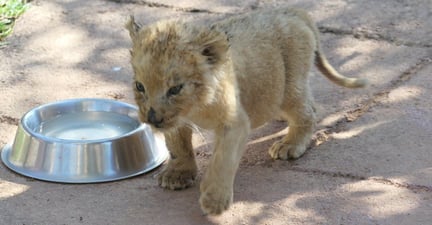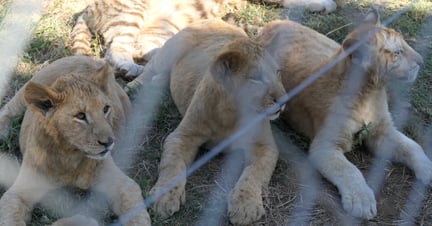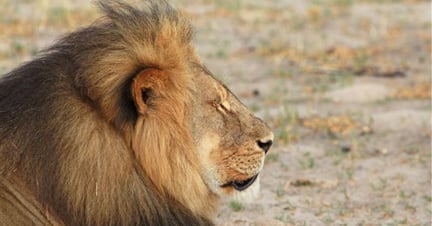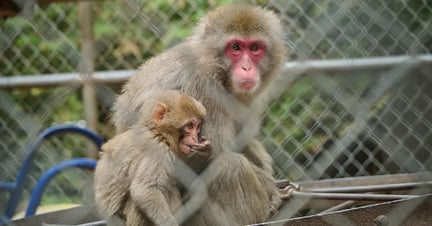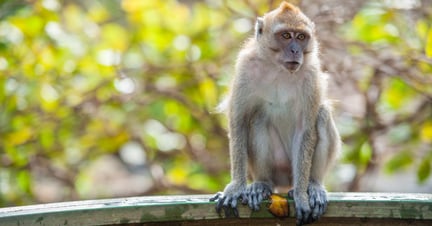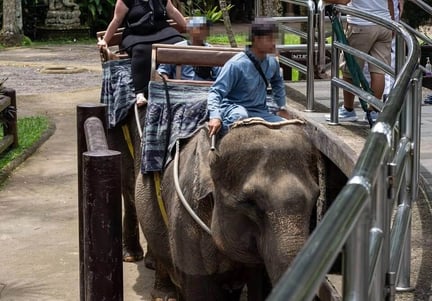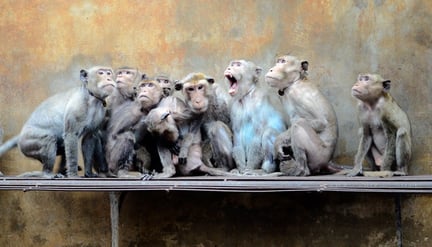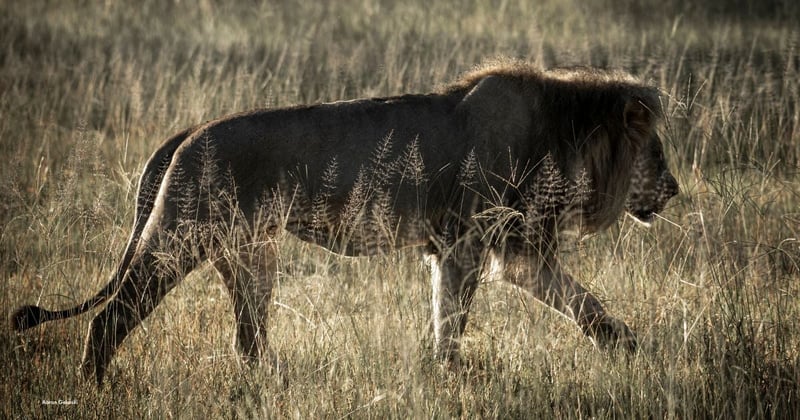
Lion Killed by Trophy Hunters in Zimbabwe. 10 Years After Cecil, the Tragedy Repeats
News
A lion monitored by Oxford University researchers has been shot dead in Zimbabwe - sparking renewed calls to end trophy hunting for good.
A male lion named Blondie, who was part of a research project led by Oxford University's Wildlife Conservation Research Unit (WildCRU), has been legally shot by a trophy hunter near Hwange National Park, Zimbabwe.
His death has drawn strong comparisons to the killing of Cecil the Lion in 2015, who was also collared and tracked by the same research team.
The incident has reignited public outrage and calls for an end to trophy hunting, as well as stronger protections for Africa's remaining wild lions.
Blondie was a key part of his pride
Blondie was a five-year-old dominant male lion and part of a long-term conservation study. He was fitted with a visible GPS collar, sponsored by Africa Geographic, to support research into lion behaviour and movement.
According to the organisation, Blondie was legally hunted in late June 2025 in an area bordering Hwange National Park. He had been the leading male of a pride that included three adult females and around ten cubs.
The Zimbabwe Parks and Wildlife Management Authority confirmed the hunt was carried out with valid permits, stating that research collars do not exempt lions from being hunted under current law.
'Enough is enough': A call for real, lasting change
Tricia Croasdell, CEO of World Animal Protection:
This news is devastating. Ten years on from Cecil the lion, have we learned nothing?
"Earlier this month we launched a study showing that over 85% of community members living near Kruger National Park in South Africa supported the introduction of a lion protection fee, also known as a 'lion levy'.
"This small fee, paid by visiting tourists would help fund lion protection, rather than the exploitation of lions through trophy hunting.
"The strong backing from local communities follows on from our 2023 research, which found that more than 80% of international tourists, including from Zimbabwe would also support a lion protection fee during their travels.
"Together, these findings send a powerful message: both local residents and global visitors want to see lions protected, not exploited for trophy hunting.
"Enough is enough, we need to show that Cecil and Blondie's deaths were not in vain.
People around the world are calling for real, lasting change - for a future where wild animals are respected and protected in their natural habitats, not bred and killed for profit.
Public support for lion protection is growing
A recent World Animal Protection study found that 85% of people living near South Africa's Kruger National Park support a proposed lion protection fee to fund conservation and local communities through more responsible tourism.
Globally, there is growing demand for wildlife-friendly travel, with over 80% of international tourists in the region supporting initiatives that protect lions rather than exploit them.
Take action to protect wild lions
Trophy hunting is not just a threat to individual animals like Blondie - it undermines conservation and public trust in wildlife protection.
Here's how you can help:
- Support our campaign to end trophy hunting
- Donate to help protect wild animals from cruelty and exploitation
- Travel responsibly by avoiding attractions that use wild animals for entertainment
- Share this story to raise awareness and pressure governments to act
Towards a future where lions are safe in the wild
We are working to end the global wildlife trade and ensure that wild animals like lions are protected in their natural habitats.
We're pushing for legislative change, holding the trophy hunting industry to account, and promoting community-led conservation models that benefit both people and animals.
The killing of Blondie should not be dismissed as legal routine, it should be a wake-up call. A future where wild lions are valued alive, not as trophies, is possible, and it starts with action.
Related content
South Africa moves closer to banning captive lion breeding
News
South Africa takes a step toward banning captive lion breeding with new progress announced on the long-awaited Lion Prohibition Notice.
What is wildlife farming?
Ending commercial exploitation
Wildlife farming is the commercial breeding and raising of wild animals. Learn how you can take action to prevent their exploitation.
The stance on trophy hunting 10 years on from Cecil's death
News
A decade after the brutal killing of Cecil the Lion shocked the world, new findings suggest a turning point in the future of wildlife tourism.
